Premium Only Content
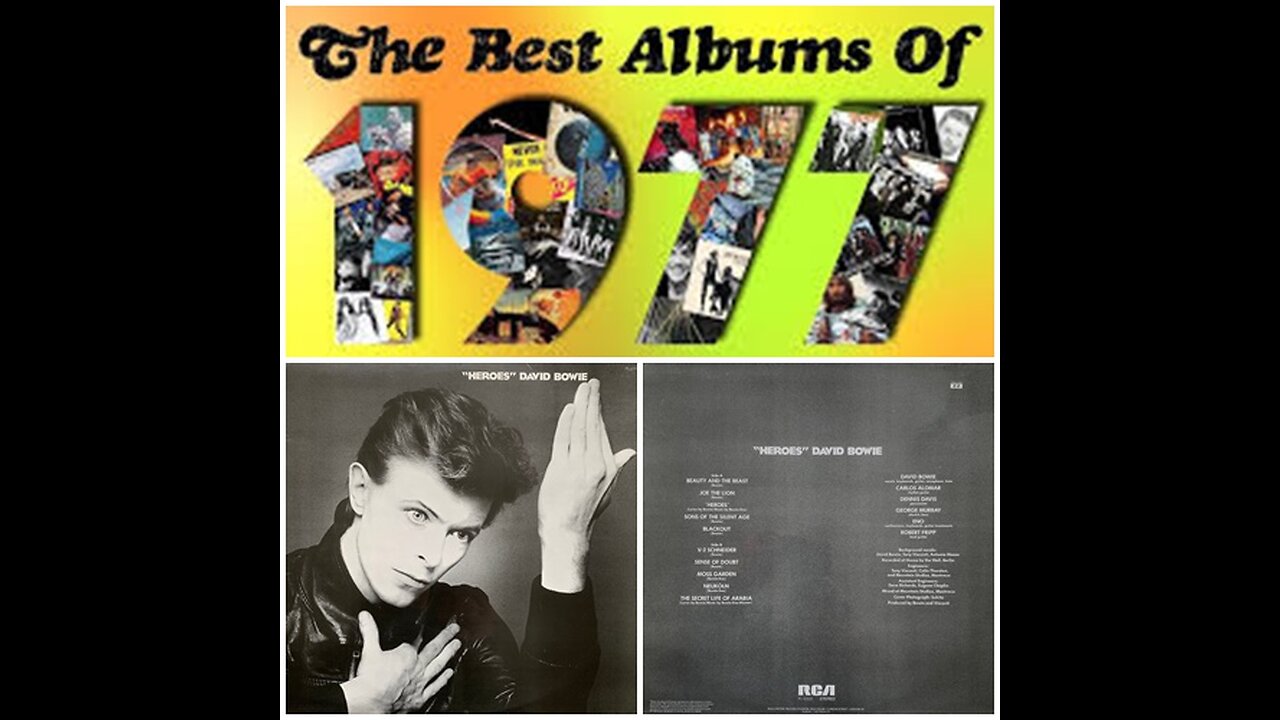
My Top 20 albums from 1977 No 10
No 10 Heroes David Bowie
Tracklist
Beauty And The Beast 3:35
Joe The Lion 3:07
"Heroes" 6:05
Sons Of The Silent Age 3:18
Blackout 3:46
V-2 Schneider 3:10
Sense Of Doubt 3:56
Moss Garden 5:05
Neuköln 4:33
The Secret Life Of Arabia 3:45
Even before David Bowie stepped foot in Berlin's grandiose Meistersaal concert hall, the room had soaked up its fair share of history. Since its opening in 1912, the wood-lined space had played host to chamber music recitals, Expressionist art galleries, and Nazi banquets, becoming a symbol of the German capital's artistic-and political-alliances across the 20th century. The hall's checkered past, as well as its wide-open acoustics, certainly offered a rich backdrop for the recording of "Heroes" in the summer of 1977.
But by then, the Meistersaal was part of Hansa Studios, a facility that felt more like a relic than a destination. Thirty years after much of Berlin was bombed to rubble during World War II, the pillars that marked the studio's exterior were still ripped by bulletholes, its highest windows filled with bricks. Whereas it was once the epitome of the city's cultural vanguard, in '77, the locale was perhaps best known for its proximity to the Berlin Wall-the imposing, barbed-wire-laced structure that turned West Berlin into an island of capitalism amidst East Germany's communist regime during the Cold War. The Wall was erected to stop East Berliners from fleeing into the city's relatively prosperous other half and by the late '70s had been built up to include a no-man's land watched by armed guards in turrets who were ordered to shoot. This area was called the "death strip," for good reason-at least 100 would-be border crossers were killed during the Wall's stand, including an 18-year-old man who was shot dead amid a barrage of 91 bullets just months before Bowie began his work on "Heroes".
All of which is to say: West Berlin was a dangerous and spooky place to make an album in 1977. And that's exactly what Bowie wanted. After falling into hedonistic rock'n'roll clichés in mid-'70s Los Angeles-a place he later called "the most vile piss-pot in the world"-he set his sights on Berlin as a spartan antidote. And though "Heroes" is the second part of his Berlin Trilogy, it's actually the only one of the three that he fully recorded in the city. "Every afternoon I'd sit down at that desk and see three Russian Red Guards looking at us with binoculars, with their Sten guns over their shoulders," the album's producer, Tony Visconti, once recalled. "Everything said we shouldn't be making a record here." All of the manic paranoia and jarring juxtapositions surrounding Hansa bled into the music, which often sounds as if Bowie is conducting chaos, smashing objects together to discover scarily beautiful new shapes.
Those contrasts begin with the album's personnel. For "Heroes", the then-30-year-old enlisted many of the same players that showed up on its predecessor, Low, once again balancing out the effortless groove-based rock stylings of drummer Dennis Davis, bassist George Murray, and guitarist Carlos Alomar, with Bowie's own idiosyncratic work across various instruments along with the heady synth wizardry of Brian Eno, who took on an expanded role. Part Little Richard boogie, part krautrock shuffle, the unlikely stylistic combination hints at man's evolution with technology while throwing off sparks of sweat. Also like Low, the album is broken into two contrasting sides, with the vocal tracks on the front and the back made up of mostly moody instrumentals.
But setting "Heroes" apart was the crucial addition of King Crimson guitar god Robert Fripp, who sprayed his signature metallic tone all over many of the album's most memorable moments. According to legend, Fripp recorded all of his parts in one six-hour burst of wiry bliss and feedback, often just soloing over tracks he was hearing for the first time. That spontaneity-most of the album's jam-based backing rhythm tracks were also recorded quickly, over just two days-is part of what makes "Heroes" live and breathe to this day. It's an album that is constantly morphing, never static. As Fripp's guitar is shooting electrical shocks, Bowie is bleating saxophone blasts, and Eno is summoning sonic storm clouds that pass as soon as they arrive.
And then there are the vocals. "Heroes" contains some of Bowie's greatest vocal performances, fearless takes in which he pushes his voice to wrenching emotional states that often teeter on the edge of sanity. There's tension here, too, because while Bowie is clearly putting all of himself into the microphone like never before, he would often have no idea what he was actually going to sing until actually stepping up to record, a technique borrowed from his frequent collaborator at the time, Iggy Pop. What came out was a Burroughsian stream of consciousness that suggests elements of Bowie's personal travails-involving alcoholism, a crumbling marriage, and business woes-while also sounding abstract and shadowy. He deals with previous alter egos on "Beauty and the Beast," which could be read as a kind of apology for the ill-advised, coke-fueled fantasies of fascism he was peddling just a couple of years before. He muddles sleep and death, dreams and waking life. On the iconic title track, he undercuts the song's would-be heroism by placing its title in quotes; rather than bending over backwards to elevate his own myth, "Heroes" puts everyday courage on a pedestal. It's an immortal track all about fleeting wonders.
The album's contradictory nature went beyond Berlin and its spitballing creation, too. "Heroes" was released on October 14, 1977, just two weeks before the Sex Pistols' Never Mind the Bollocks and a few months after the Clash's self-titled debut LP. So as punk was whirling into a frenzy, Bowie's TV appearances around the time of "Heroes" doubled as acts of stoic defiance. On the Dutch program "TopPop," for example, he looked nonchalant in a smart blazer, button-up shirt, and leg warmers, effortlessly crooning the title track like Sinatra in his prime. During the song's swirling bridge, he steps away from the microphone, lights up a cigarette, and stares into the middle distance-the face of calm in an era of turmoil.
He repeated this trick on Italian television, turning the doomsaying instrumental "Sense of Doubt" into an ominous art film in which he oversees a duel between a piano and a synthesizer. To this day, the video feels dangerous, unsettling. A marketing slogan for "Heroes" boasted, "There's Old Wave, there's New Wave and there's David Bowie," which still rings true, especially in light of such performances. With the kids coming up from behind, Bowie used his experience to carve out a different kind of future.
The Berlin Trilogy, and "Heroes" in particular, show all the signs of an artist growing up, shaking off the trappings of capitalist ego and success, and searching for a soul instead. Of course, Bowie's ego was a magnificent thing at its height, but he also understood its insatiability-how it would kill him if he did not kill it. And even in his dressed-down "Heroes" garb-bomber jacket, tousled short hair, jeans-he couldn't escape his own magnetism; in fact, seeing how cool Bowie looked without all the makeup and costumes could make him seem even more untouchable. At 30, he was content with his art, happy to explore humankind's existential struggles while living in a divided, war-torn city. Berlin gave him perspective and compassion. It allowed him to be small. To let his guard down and his mind wander. To begin to come to terms with his own mortality. "We'll do anything in our power to stay alive. There's a feeling that the average lifespan should be longer than it is. I disagree," Bowie told Melody Maker in October '77. "I mean, we've never lived so long. Not so very long ago no one lived passed the age of 40. And we're still not happy with 70. What are we after exactly? There's just too much ego involved. And who wants to drag their old decaying frame around until they are 90, just to assert their ego? I don't, certainly."
Featured Tracks
Heroes and Sons Of The Silent Age
-
 13:23
13:23
JohnVicarysMusicPassions
16 days agoMy Top 20 albums for 1978 no 15
271 -
 11:07
11:07
TimcastIRL
1 day agoElon Musk Suggests He’ll BUY MSNBC, Joe Rogan Will REPLACE Rachel Maddow
38.8K45 -
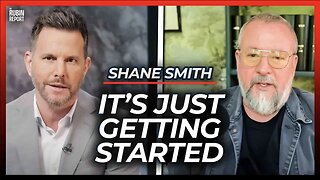 34:24
34:24
The Rubin Report
20 hours agoFormer CEO: The Aftermath of Vice Media & What's Next for Mainstream Media | Shane Smith
58.2K12 -
 DVR
DVR
tacetmort3m
1 day ago🔴 LIVE - BECOMING THE UNTOUCHABLE (RADIATION WHO?) - STALKER 2 - PART 3
17.1K3 -
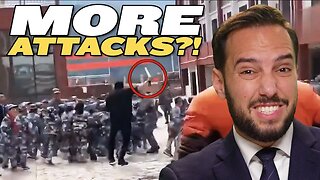 16:05
16:05
China Uncensored
15 hours agoAnother Car-Ramming Strikes Outside a Chinese School!
11.6K12 -
 9:26
9:26
Dr. Nick Zyrowski
7 hours agoAnti Inflammatory Foods | You MUST Eat These!
8.51K1 -
 15:40
15:40
Bearing
2 hours agoEnd Stage Trump Derangement | Rosie O'Donnell is NOT Doing Well 😬
9.82K46 -
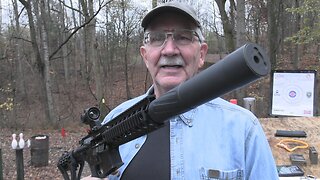 35:19
35:19
hickok45
5 hours agoSunday Shoot-a-Round # 256
18.8K21 -
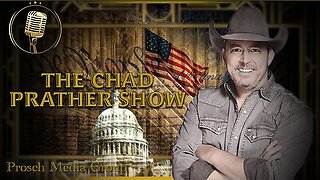 41:20
41:20
PMG
17 hours ago $0.68 earned"The No B.S. Guide to Getting Your Life together in 2024!"
11.9K -
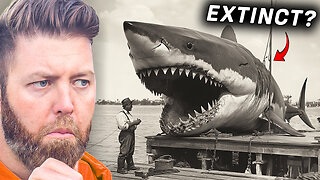 14:22
14:22
Forrest Galante
17 hours agoDoes The Megalodon Still Exist?
104K29